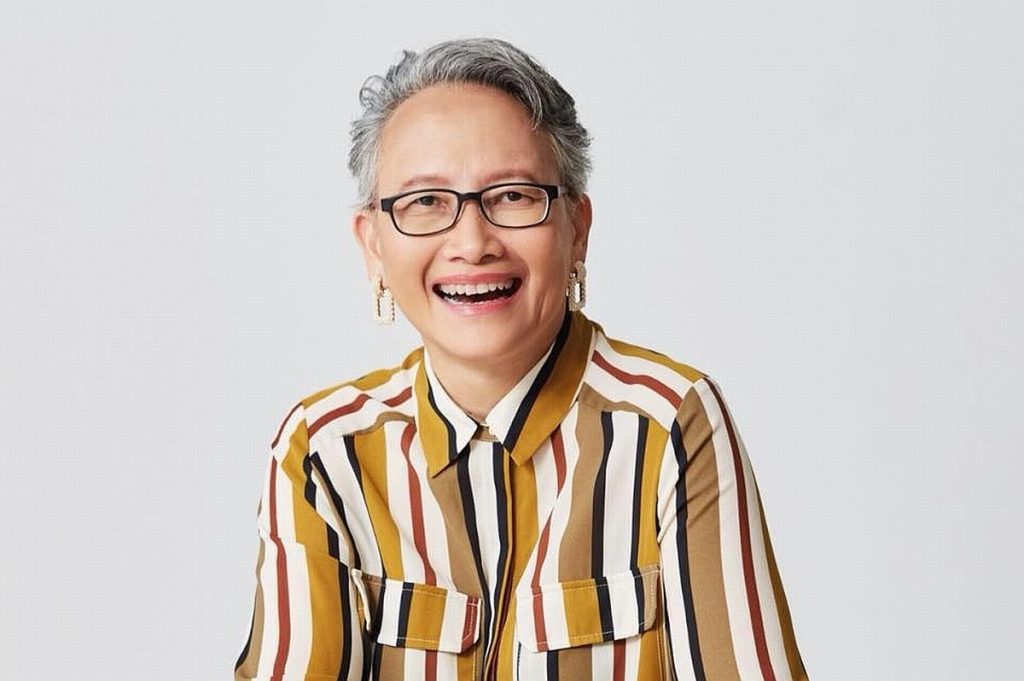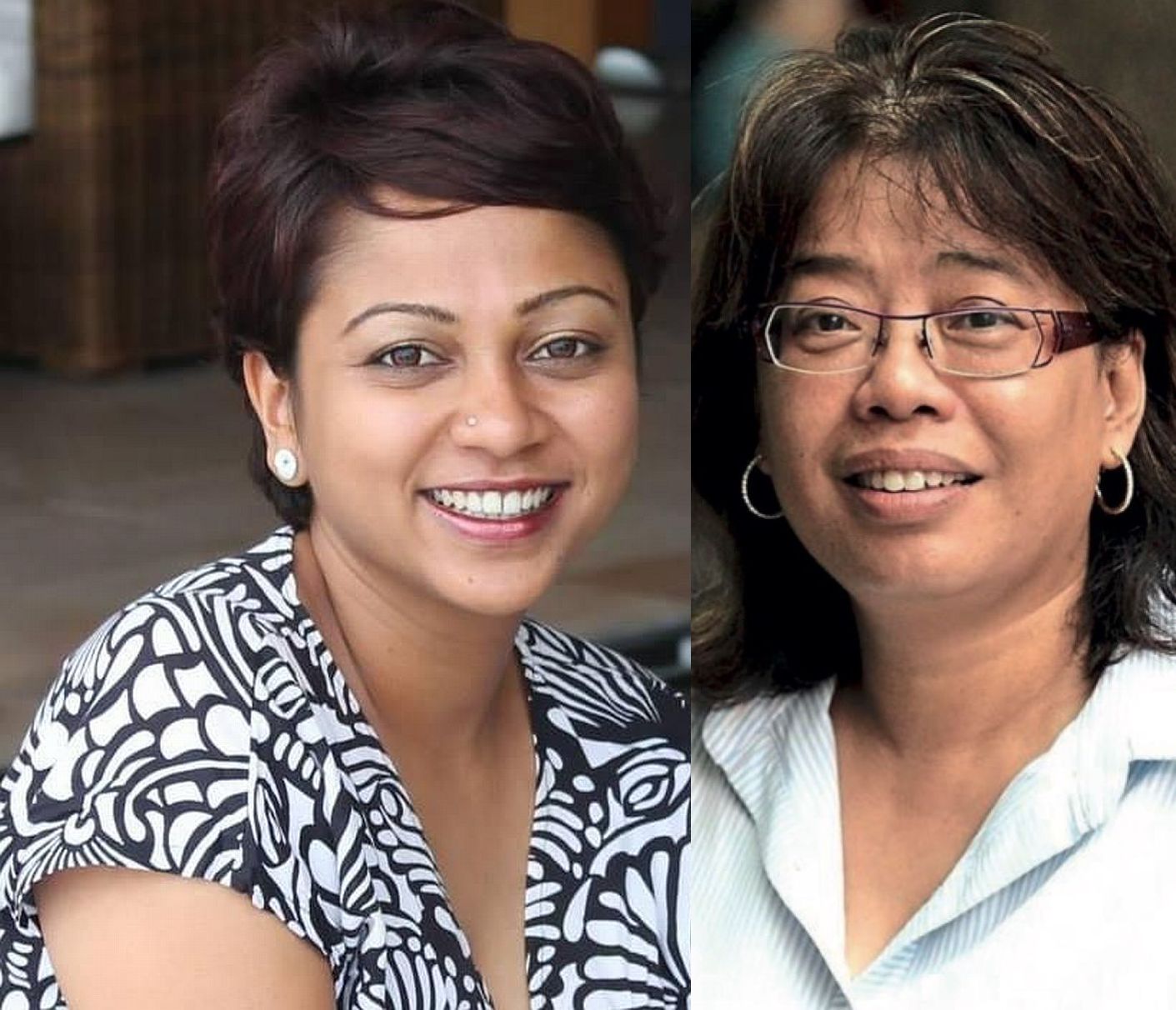KUALA LUMPUR, July 7 — Child rights activists have expressed support for the Malaysian Council for Tobacco Control’s (MCTC) judicial review bid against the declassification of liquid nicotine from the Poisons Act 1952.
Ananti Rajasingam and Hartini Zainudin, chief executive officer and co-founder respectively of Yayasan Chow Kit (YCK) – a non-profit that runs drop-in centres and a safe home for children – stressed that the government has the responsibility to enact child protection policies instead of just leaving it to parents to protect their children from vape and e-cigarettes.
“Yes, I do [support the lawsuit]. It is quite unacceptable for the Minister of Health to remove vaping from the poisonous substance category, as vaping is really dangerous to both children’s and adults’ health,” Ananti told CodeBlue yesterday.
The judicial review application filed by anti-tobacco groups MCTC and the Malaysian Green Lung Association (MGLA), as well as by child rights group Voice of the Children, challenged the order gazetted by Health Minister Dr Zaliha Mustafa last March 31 that exempted liquid and gel nicotine from the Poisons List of scheduled poisons.
The exemption effectively legalised the sale of e-cigarettes and vape for anyone, including minors aged below 18, due to the lack of regulations on such nicotine products. The Control of Tobacco Product Regulations 2004 under the Food Act 1983 only regulates conventional tobacco products and does not cover vape or e-cigarettes.
“While cigarettes are known to be dangerous, it is a controlled substance. The ingredients to make cigarettes are controlled and regulated by [the] tobacco laws of Malaysia and are prohibited to be sold to children below 18.
“On the contrary, vape is sold to everyone, and children begin vaping at a very young age since it’s easily accessible. E-cigarettes and vaping are addictive and harmful to children. There are cases of deaths in children due to the use of vape.”
YCK has even caught children vaping in its centre.
“Our practice is to give them a warning first. We also have started doing random spot checks and have put a poster up to ban cigarettes and vape in the centre. After three warnings, parents will be called in to meet with the social workers. This has reduced the issue of bringing vapes to the centre,” Ananti said.
Ananti also said parents feel they cannot control the purchase of vapes by their children, as there are numerous and easily accessible vape shops that sell their products to minors at low prices. Adolescents can purchase disposable vape devices containing nicotine for as little as RM15.
“With the kind of flavours produced, it makes it more attractive to children and has made it a norm for them to smoke. This issue will be a really challenging one to counter as there is no ban of sales of vape to minors. Now that it has been removed from the Poisons Act, it will only make things worse.”
Dr Zaliha recently told parents to protect their children from vape and e-cigarettes, and for the industry to practise “self-regulation” to avoid selling such products to minors, even as she admitted the lacuna in the law that resulted from her own order declassifying liquid nicotine as a scheduled poison.
“It’s not easy for just parents to monitor their kids only. If vape is easily accessible, children will find all means to get their hands on it,” Ananti pointed out.
“This is an issue that everyone has to put in their responsibility to curb together. The government banning vape, like our neighbour Singapore, will be a good way to handle this. Therefore all vendors selling vape, if [they] continue to sell, will also be fined or limiting sales to only 18+.”
Vaping is illegal in Singapore, but last year, the Singaporean Health Sciences Authority caught 4,916 people for vaping, and the Singaporean Ministry of Education said that seven out of every 1,000 students were caught for smoking and vaping offences.
Hartini Zainudin: When Will Kids Be A Priority?
YCK co-founder Hartini Zainudin was also dismissive of the health minister putting the onus on parents to prevent their children from vaping, even as the government’s own actions resulted in legalising nicotine vape without curbs on sale to minors.
“So we have body cams? On children, government will wash [their] hands off nor play a part in monitoring and supporting?
“When will kids be a priority in this country? Their needs, their protection?”.
Liquid and gel nicotine used in e-cigarettes and vaporisers was removed from the Poisons List last March 31 even though the government had yet to table or pass the Control of Smoking Products for Public Health Bill 2023 that regulates such products, along with conventional tobacco products. The government referred the bill to the Health parliamentary special select committee last June 12 after first reading in the last Dewan Rakyat meeting.
Hartini, who was shocked when she heard of the liquid nicotine declassification, expressed support for civil society’s lawsuit against the health minister and the government, due to her personal experience of the dangers that vape devices pose to children and teens.
The child rights activist said her son was just 14-years-old when he first started vaping, and although her son has told her that he has given up the habit, all she can do is trust in him and hope and pray that he is telling her the truth.
“If these health and child NGOs (non-governmental organisations) have brought a lawsuit against the health minister and the government, it indicates that they have concerns regarding certain policies or actions. It would be important to analyse the specific details and arguments presented in the lawsuit to form a more informed opinion.
“But yes, I agree because my son was vaping and I know how dangerous this is and how easy it is for kids to vape.
“He said he’s stopped. He’s almost 18 now, and he’s older and wiser. I have to trust him, but it’s scary not knowing. He knows the dangers; I have discussed [it] with him. I told my son, ‘you may think it’s cool to vape and bond with friends, but when you’re sick and get cancer, you suffer alone, and it’s so not cool’,” Hartini told CodeBlue.
Hartini said that the impact of vaping on children is of huge concern to her, especially with the rising number of children and teens turning to e-cigarettes.
The latest data from the National Health and Morbidity Survey (NHMS): Adolescent Health Survey 2022 shows that the prevalence of teenagers aged 13 to 17 years currently using e-cigarettes or vape rose from 9.8 per cent in 2017 (211,084 people) to 14.9 per cent (307,109 people) in 2022, marking a notable increase over the five-year period.
“The impact of vaping and e-cigarettes on children and teens is a matter of huge concern. The use of these products among young individuals has increased significantly in recent years, and there is growing evidence suggesting adverse health effects associated with vaping: nicotine addiction, lung damage, behavioural issues, and cognitive impairments are among the potential risks,” Hartini said.
She added that health education among youths on the harms of vaping is crucial, as children are under the mistaken impression that vaping, unlike smoking, is not bad for one’s health.
“It is important to educate young individuals about the dangers of vaping and implement effective measures to prevent their access to these products.
“Kids today think smoking is bad but not vaping. I’m like, ‘Oyyy, vaping is worse. There’s no filter. And it’s really more addictive and insidious’.”
Now, prayer is all parents have when it comes to preventing their children from falling into the trap of nicotine addiction, lamented Hartini.
“But wouldn’t it be so much better for everyone, especially the children if we knew there wasn’t any way for children to vape at all and there were rules and policies in place to protect children?”
PAGE Remains Neutral on Lawsuit

The Parent Action Group for Education Malaysia (PAGE) has chosen not to take sides yet on the lawsuit by health and child rights NGOs that was filed in the High Court here last Friday. Hearing for the case has been set for July 26.
PAGE is an educational lobbyist that serves as a channel that connects parents and the Ministry of Education and other educational stakeholders.
“PAGE would prefer to remain neutral in this respect. The situation is still volatile, and there appears to be finger-pointing at this stage,” PAGE chairwoman Noor Azimah Abdul Rahim told CodeBlue.
“If the decision to declassify was merely economic and not in the best interest of the child, then let the legal process take its course. PAGE is of the view that children and teens should be discouraged from vaping and indulging in e-cigs.
“Parents, with the help of teachers, should dissuade children and teens from vaping and move on to other positive and more productive forms of relaxation such as sport or outdoor activities.”
Dr Zaliha told the Dewan Rakyat Special Chamber last June 12 that the exemption of liquid and gel nicotine from the Poisons List was the government’s “due process” to enable the taxation of e-cigarette and vape liquids with nicotine.
Before the filing of the suit by MCTC, MGLA, and VoC, the health minister had never publicly provided a public health reason for the declassification of liquid nicotine. The Ministry of Health (MOH) has consistently disputed industry claims of “harm reduction” with vape and e-cigarettes.
Last April 5, the Human Rights Commission of Malaysia’s (Suhakam) Children’s Commissioner Farah Nini Dusuki released a press statement, holding the declassification of liquid and gel nicotine to be in breach of the “spirit” of the Child Act 2001.
The senior lecturer at University Malaya’s law faculty cited the preamble of the Child Act that acknowledges that a child, by reason of their physical, mental and emotional immaturity, is in need of special safeguards, care and assistance after birth.
Farah held this protection to include “protection from a smoke and nicotine-infested environment” and that it is the State’s responsibility to ensure that children are not exposed to anything that might endanger their physical and emotional health.
Since the delisting of liquid nicotine, Malaysia has been rocked by the death of a 16-year-old teenage girl from heart failure in a case classified as a probable e-cigarette or vaping use-associated lung injury (EVALI) and the nicotine poisoning of a two-year-old toddler, who was left with neurological problems with impaired motor and speech functions.
Both cases were reported last month. The teenager, whose death was the first reported EVALI-linked fatality in the country, had a three-year vaping history.








